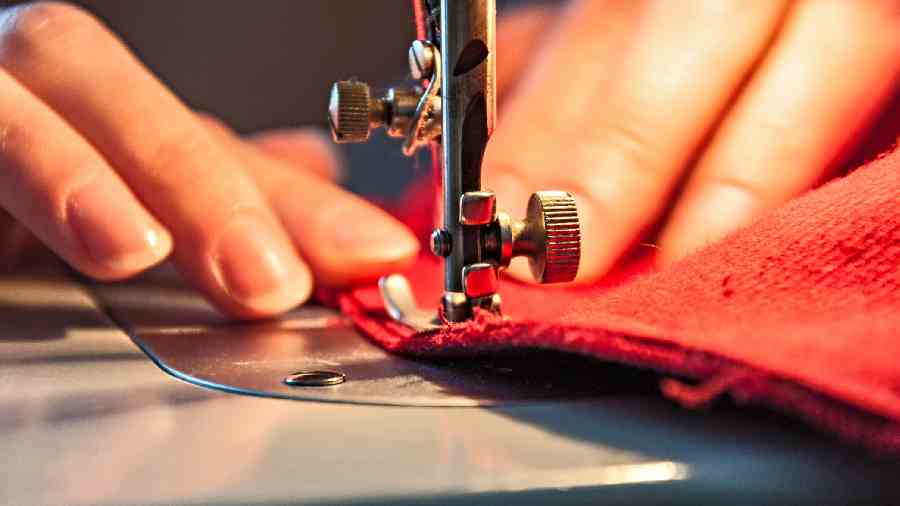A group of women in the interiors of North 24-Parganas, who are survivors of trafficking and domestic abuse, have been provided with sewing machines to earn a living and rebuild their lives.
Over and above the torment outside, many of these women go through the ordeal of the family members which leads to low esteem.
Members of Kolkata Mary Ward Social Centre (KMWSC), an NGO, working with these women think financial independence will help them gain confidence.
The sewing machines have been provided to 15-odd women after an assessment was done to understand their needs and their skills.
Most of these women know how to sew and use a machine but neither have one nor the means to buy it.
A woman in her late 30s, who has two children, was taken to Mumbai by her husband and sold off in a brothel. From Mumbai, she was taken to Andhra Pradesh and finally with the help of a client she was able to escape from the south Indian state and return to her children.
Another woman in her early 20s was in need of a job after the death of her father last year. She was lured into one but soon realised that she was it was a trap. The stranger, who had come to meet her at a railway station, moved away for some reason and she managed to escape.
“Our approach in working with them is to ask them what they need and some of them told us that they want help to earn a living. They told us that they know how to stitch and a machine would help them take orders from hospitals for aprons, school uniforms and other clothing items,” Sister Monica Suchiang, director of KMWSC.
Each of these 15 women deposits token money every month from what they earn. They are creating a fund that will help them.
One of the women said she has been earning about Rs 1,000 from sewing.
“My father passed away and my mother is too sick to work. I take tuition twice a day and whatever time I can get I stitch,” she said, who was on the brink of being trafficked but managed to escape from a railway station.
The money is not a lot in the beginning but it helps to build the confidence in these women, said some of the women who have worked with them.
“The idea is to help them have a stable source of income. We are not providing them with orders. That they have to do on their own. But our intention is to give them the means to earn,” said Nabanita Shome, programme lead, protection and prevention, KMWSC.
Shome said that before they were given the machines, the women would borrow and that would come in their way of taking orders even if they wanted to.
Mary Ward social centre works with two survivor groups and the women meet at least twice a month.
They share their problems at these meets and are also counselled that what happened to them is not their fault and they need not feel “guilty” about it.
